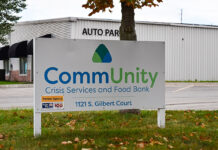PepsiCo and its philanthropic arm, The PepsiCo Foundation, have announced a commitment of over $500,000 to support emergency food deliveries and rescue operations in Louisiana in partnership with The Salvation Army, Team Rubicon and the Greater New Orleans Foundation.
The relief is being mobilized as Hurricane Ida has ravaged the Gulf region and the East Coast, knocking down homes, flooding entire neighborhoods, shutting off power, and creating an immediate need for food and emergency services.
Support provided by PepsiCo and The PepsiCo Foundation will meet specific needs, including:
- More than 250,000 nutritious meals for families most in need, distributed through The Salvation Army. PepsiCo’s Food for Good operation is donating nutritious, pre-packed, non-perishable meals to complement the hot meals the Salvation Army will serve through their mobile feeding units.
- Emergency disaster relief services such as removing downed trees, enabling emergency search and rescue and utility services, and helping the most vulnerable communities rebuild in partnership with Team Rubicon.
- Support for local nonprofits through the Greater New Orleans Foundation to work directly with residents to provide temporary roofs, shelter for those not able to return home, legal aid and technical assistance for residents working to navigate FEMA and other applications for assistance.
- More than 13,000 nutritious meals for those affected by Hurricane Ida in New York, New Jersey and Pennsylvania, distributed in partnership with The Salvation Army New York.
In addition, PepsiCo Beverages North America (PBNA) and PepsiCo Foods North America (PFNA) are donating hundreds of cases of Aquafina and cases of Gatorade to Houston Community College providing relief assistance, approximately 10,000 cases of Quaker products to Feed the Hungry, a non-profit organization dedicated to feeding the poor and hungry around the world, as well as additional relief funds to local community organizations in the impacted areas.
“While first responders and relief agencies are still assessing the damage of Hurricane Ida, we know that affected citizens need relief now,” said Jon Banner, executive vice president of global communications and president of The PepsiCo Foundation. “That’s why we’re working with our dedicated partners The Salvation Army, Team Rubicon, and the Greater New Orleans Foundation and mobilizing our own Food for Good operation to deliver meals and emergency relief. These communities need our support as they face the immediate impacts of the storm and recover in its wake.”
“Partners like PepsiCo enable us to respond quickly with the food, water, and emergency relief that disaster survivors need most in urgent crises like this one,” said Alvin Migues, emergency disaster services director for The Salvation Army’s Texas division. “We’re grateful to work together to ensure we are providing these services to those impacted by Hurricane Ida as quickly as possible.”
The PepsiCo Foundation will also match employee donations to organizations that are providing critical relief for impacted communities along the Gulf Coast and in the Northeast region, as well as activating PEPHelp, an employee-to-employee program to support employees of PepsiCo affected by natural disasters with financial assistance.
“As a company with a strong presence across North America, PepsiCo is committed to helping our communities, employees, and partners weather the devastation being wrought by Hurricane Ida,” said Derek Lewis, president of the south division of PepsiCo Beverages North America. “While supporting first responders and relief efforts as they help these communities is a critical part of our work, we’ll also continue to monitor the situation closely so we can respond to communities’ long-term needs as needed. Our thoughts and prayers are with all those who are affected.”
The PepsiCo Foundation is a member of the American Red Cross’ Annual Disaster Giving Program (ADGP), granting at least $500,000 annually to ensure the Red Cross can pre-position supplies, secure shelters, maintain vehicles, train volunteers and prepare for future disasters.




